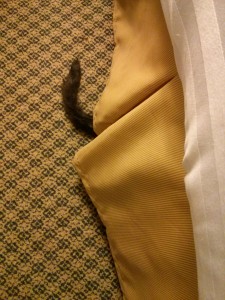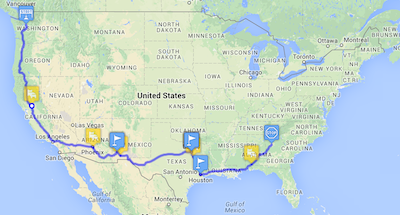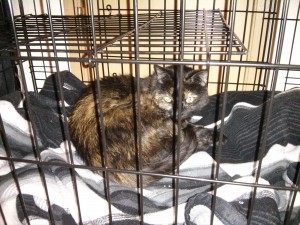I am a firm believer in the power of open source to help libraries build the tools we need to help our patrons and our communities.
Our tools focus our effort. Our effort, of course, does not spring out of thin air; it’s rooted in people.
One of the many currencies that motivates people to contribute to free and open source projects is acknowledgment.
Here are some of the women I’d like to acknowledge for their contributions, direct or indirect, to projects I have been part of. Some of them I know personally, others I admire from afar.
- Henriette Avram – Love it or hate it, where would we be without the MARC format? For all that we’ve learned about new and better ways to manage metadata, Avram’s work at the LC started the profession’s proud tradition of sharing its metadata in electronic format.
- Ruth Bavousett – Ruth has been involved in Koha for years and served as QA team member and translation manager. She is also one of the most courageous women I have the privilege of knowing.
- Karen Coyle – Along with Diane Hillmann, I look to Karen for leadership in revamping our metadata practices.
- Nicole Engard – Nicole has also been involved in Koha for years as documentation manager. Besides writing most of Koha’s manual, she is consistently helpful to new users.
- Katrin Fischer – Katrin is Koha’s current QA manager, and has and continues to perform a very difficult job with grace and less thanks than she deserves.
- Ruth Frasur – Ruth is director of the Hagerstown Jefferson Township Public Library in Indiana, which is a member of Evergreen Indiana. Ruth is one of the very few library administrators I know who not only understands open source, but actively contributes to some of the nitty-gritty work of keeping the software documented.
- Diane Hillmann – Another leader in library metadata.
- Kathy Lussier – As the Evergreen project coordinator at MassLNC, Kathy has helped to guide that consortium’s many development contributions to Evergreen. As a participant in the project and a member of the Evergreen Oversight Board, Kathy has also supplied much-needed organizational help – and a fierce determination to help more women succeed in open source.
- Liz Rea – Liz has been running Koha systems for years, writing patches, maintaing the project’s website, and injecting humor when most needed – a true jill of all trades.
However, there are unknowns that haunt me. Who has tried to contribute to Koha or Evergreen, only to be turned away by an knee-jerk “RTFM” or simply silence? Who might have been interested, only to rightly judge that they didn’t have time for the flack they’d get? Who never got a chance to go to a Code4Lib conference while her male colleague’s funding request got approved three years in a row?
What have we lost? How many lines of code, pages of documentation, hours of help have not gone into the tools that help us help our patrons?
The ideals of free and open source software projects are necessary, but they’re not sufficient to ensure equal access and participation.
The Ada Initiative can help. It was formed to support women in open technology and culture, and runs workshops, assists communities in setting up and enforcing codes of conduct, and promotes ensuring that women have access to positions of influence in open culture projects.
Why is the Ada Initiative’s work important to me? For many reasons, but I’ll mention three. First, because making sure that everybody who wants to work and play in the field of open technology has a real choice to do so is only fair. Second, because open source projects that are truly welcoming to women are much more likely to be welcoming to everybody – and happier, because of the effort spent on taking care of the community. Third, because I know that I don’t know everything – or all that much, really – and I need exposure to multiple points of view to be effective building tools for libraries.
Right now, folks in the library and archives communities are banding together to raise money for the Ada Initiative. I’ve donated, and I encourage others to do the same. Even better, several folks, including Bess Sadler, Andromeda Yelton, Chris Bourg, and Mark Matienzo are providing matching donations up to a total of $5,120.
Go ahead, make a donation by clicking below, then come back. I’ll wait.

Money talks – but whether any given open source community is welcoming, both of new people and of new ideas, depends on its current members.
Therefore, I would also like to extend a challenge to men (including myself — accountability matters!) working in open source software projects in libraries. It’s a simple challenge, summarized in a few words: “listen, look, lift up, and learn.”
Listen. Listening is hard. A coder in a library open source project has to listen to other coders, to librarians, to users – and it is all too easy to ignore or dismiss approaches that are unfamiliar. It can be very difficult to learn that something you’ve poured a lot of effort into may not work well for librarians – and it can be even harder to hear that your are stepping on somebody’s toes or thoughtlessly stomping on their ideas.
What to do? Pay attention to how you communicate while handling bugs and project correspondence. Do you prioritize bugs filed by men? Do you have a subtle tendency to think to yourself, “oh, she’s just not seeing the obvious thing right in front of her!” if a women asks a question on the mailing list about functionality she’s having trouble with? If so, make an effort to be even-handed.
Are you receiving criticism? Count to ten, let your hackles down, and try to look at it from your critic’s point of view.
Be careful about nitpicking. Many a good idea has died after too much bikeshedding – and while that happens to everybody, I have a gut feeling that it’s more likely to happen if the idea is proposed by a woman.
Is a women colleague confiding in you about concerns she has with community or workplace dynamics? Listen.
Look. Look around you — around your office, the forums, the IRC channels, and Stack Exchanges you frequent. Do you mostly see men who look like yourself? If so, do what you can to broaden your perspective and your employer’s perspective. Do you have hiring authority? Do you participate in interview panels? You can help who surrounds you.
Remember that I’m talking about library technology here — even if the 70% of the employees of the library you work for are women, if the systems department only employs men, you’re missing other points of view.
Do you have no hiring authority whatsoever? Look around the open source communities you participate in. Are there proportionally far more men participating openly than the gender ratio in librarianship as a whole? If so, you can help change that by how you choose to participate in the community.
Lift up. This can take many forms. In some cases, you can help lift up women in library technology by getting out of the way – in other words, by removing or not supporting barriers to participation such as sexist language on the mailing list or by calling out exclusionary behavior by other men (or yourself!).
Sometimes, you can offer active assistance – but ask first! Perhaps a woman is ready to assume a project leadership role or is ready to grow into it. Encourage her – and be ready to support her publicly. Or perhaps you may have an opportunity to mentor a student – go for it, but know that mentoring is hard work.
But note — I’m not an authority on ways to support women in technology. One of the things that the Ada Initiative does is run Ally Skills workshops that teach simple techniques for supporting women in the workplace and online. In fact, if you’re coming to Atlanta this October for the DLF Forum, one is being offered there.
Learn. Something I’m still learning is just the sheer amount of crap that women in technology put up with. Have you ever gotten a death threat or a rape threat for something you said online about the software industry? If you’re a guy, probably not. If you’re Anita Sarkeesian or Quinn Norton, it’s a different story entirely.
If you’re thinking to yourself that “we’re librarians, not gamers, and nobody has ever gotten a death threat during a professional dispute with the possible exception of the MARC format” – that’s not good enough. Or if you think that no librarian has ever harassed another over gender – that’s simply not true. It doesn’t take a death threat to convince a women that library technology is too hostile for her; a long string of micro-aggressions can suffice. Do you think that librarians are too progressive or simply too darn nice for harassment to be an issue? Read Ingrid Henny Abrams’ posts about the results of her survey on code of conduct violations at ALA.
This is why the Ada Initiative’s anti-harassment work is so important – and to learn more, including links to sample policies, a good starting point is their own conference policies page. (Which, by the way, was quite useful when the Evergreen Project adopted its own code of conduct). Another good starting point is the Geek Feminism wiki.
And, of course, you could do worse than to go to one of the ally skills workshops.
If you choose to take up the challenge, make a note to come back in a year and write down what you’ve learned, what you’ve listened to and seen, and how you’ve helped to lift up others. It doesn’t have to be public – though that would be nice – but the important thing is to be mindful.
Finally, don’t just take my word for it – remember that I’m not an authority on supporting women in technology. Listen to the women who are.
Update: other #libs4ada posts




